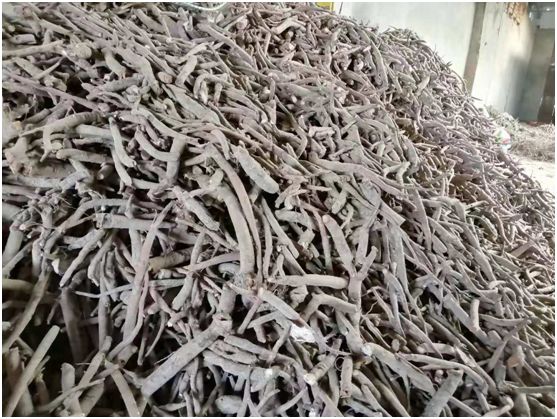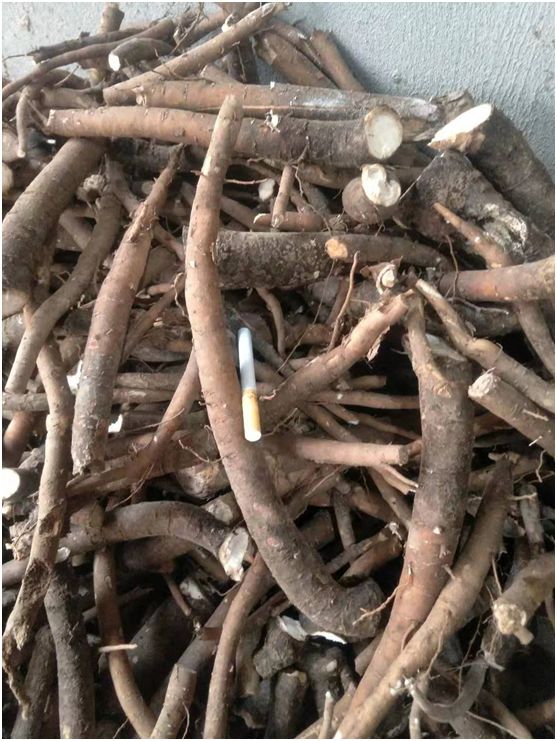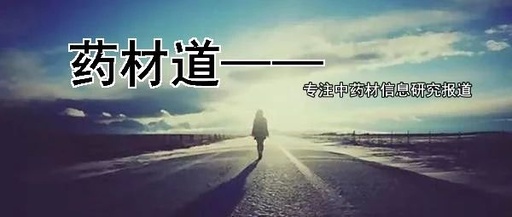

“Brother, is your factory starting to buy Bai Shao (Paeonia lactiflora)? Do you know the current price?”
“Nephew, can you ask if anyone wants Bai Shao? We have grown it for four years at home and want to sell it.”
“Cousin, can the black strips be sold for 3 yuan per kilogram? For a piece of land, I was offered 2000 yuan, but they said my black roots have ‘dog eyes’. If I grow it for another year, I will sell even less, I feel like I’m losing out!”
“Next year, Bai Shao might increase a little, but this year, buyers are not offering any prices. If the price drops further, it won’t even cover the costs.”
Bai Shao has just been harvested, and relatives and friends are calling to inquire about it. Everyone feels the same: sad, unwilling, yet still holding onto a glimmer of hope.

This local variety of Bai Shao from Bozhou is also facing a market crisis. Over the past three years, prices have continuously declined. For example, the price of black strips was 5-5.5 yuan in 2017, 4-4.5 yuan in 2018, and this year it is 3-3.5 yuan, a decrease of 25-33% over three years. Among enterprises, operators, and growers, only the growers are the most affected. After four or five years of hard work cultivating medicinal materials, when it comes time to harvest, they cannot sell them and make no profit. If it were you, you wouldn’t be willing to accept that either. But in the face of this market economy, farmers have no choice but to accept their fate.
Four years ago, one mu of land could earn over 10,000 yuan. It was easy to manage and profitable, so everyone greedily planted Bai Shao. This has led to today’s outcome, a result that cannot be changed. In the face of profit and money, people often lose their rationality, revealing their greedy side. Today’s poor market is the result of past greed. Greed is always the root of disaster; collective greed often causes individuals to lose their rationality. This is true for major varieties and minor ones alike. Farmers in Bozhou are like this, and farmers across the country cannot escape it either. Just think about it: raspberries, Zhejiang fritillary, Yuanhu (Rhizoma Corydalis), Wu Zhu Yu (Evodia rutaecarpa), and Polyporus (Zhu Ling). These varieties once brought wealth to farmers, but now they have also brought unimaginable disasters.
The government’s development of poverty alleviation medicinal materials is not only happening in Bozhou; it is being promoted nationwide. Regions like Shandong, Henan, Zhejiang, and Shanxi have too many plantations. Is the goal of poverty alleviation policies to truly help farmers escape poverty, or just to complete a task? Can you guarantee that farmers will not fall back into poverty a few years after escaping it? For the sake of performance and tasks, the relationship between supply and demand has not been considered, nor has the free competition of the market economy. Large-scale planting can only lead to one result: homegrown varieties are heading towards a poor market outcome.
Farmers are hoping for a turnaround for Bai Shao; no one wants to spend years cultivating medicinal materials only to end up with nothing. But can you expect a turnaround just by hoping? The market will not show sympathy because you are a farmer or a weak entity. Many people say, if it’s cheap, just don’t sell it and see if the price goes up. I can only tell you that because you are not a farmer, you cannot understand the farmer’s mindset. If they can sell for even a penny, they won’t let it go because it is something they have grown themselves. If they can’t find someone to help, they will do it themselves. At 1.5 yuan/kg for peony seeds, in 37° heat, they can only pick in the morning and evening, managing to harvest over 30 kg and sell for about 50 yuan. Perhaps if it were you, you would prefer to stay in an air-conditioned room rather than work in the fields, but the older generation of farmers still cannot abandon it all and rest at home. Can you understand that?

Although Bai Shao has hurt today’s farmers, perhaps in the next cycle, farmers will no longer be keen on planting Bai Shao. But once the next cycle sees a price increase, will the next batch of farmers remember the history of today’s poor market? The high income from planting will once again tempt them into greedy cultivation. Humans are the least forgetful creatures; emotions, impulses, and greed will always accompany them throughout their lives.
【Writing is not easy, remember to share!】
(Original information, copyright protected by law)




